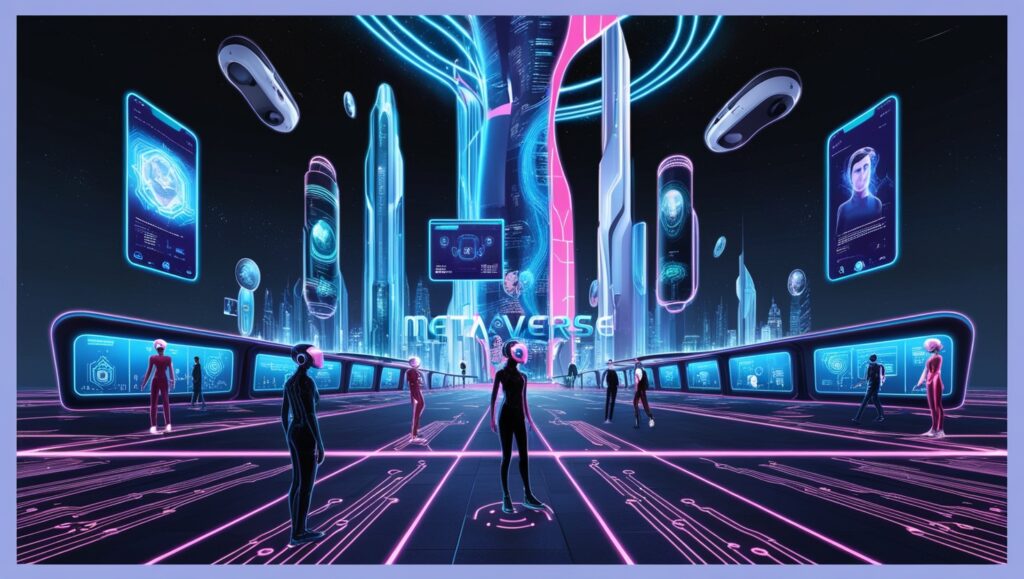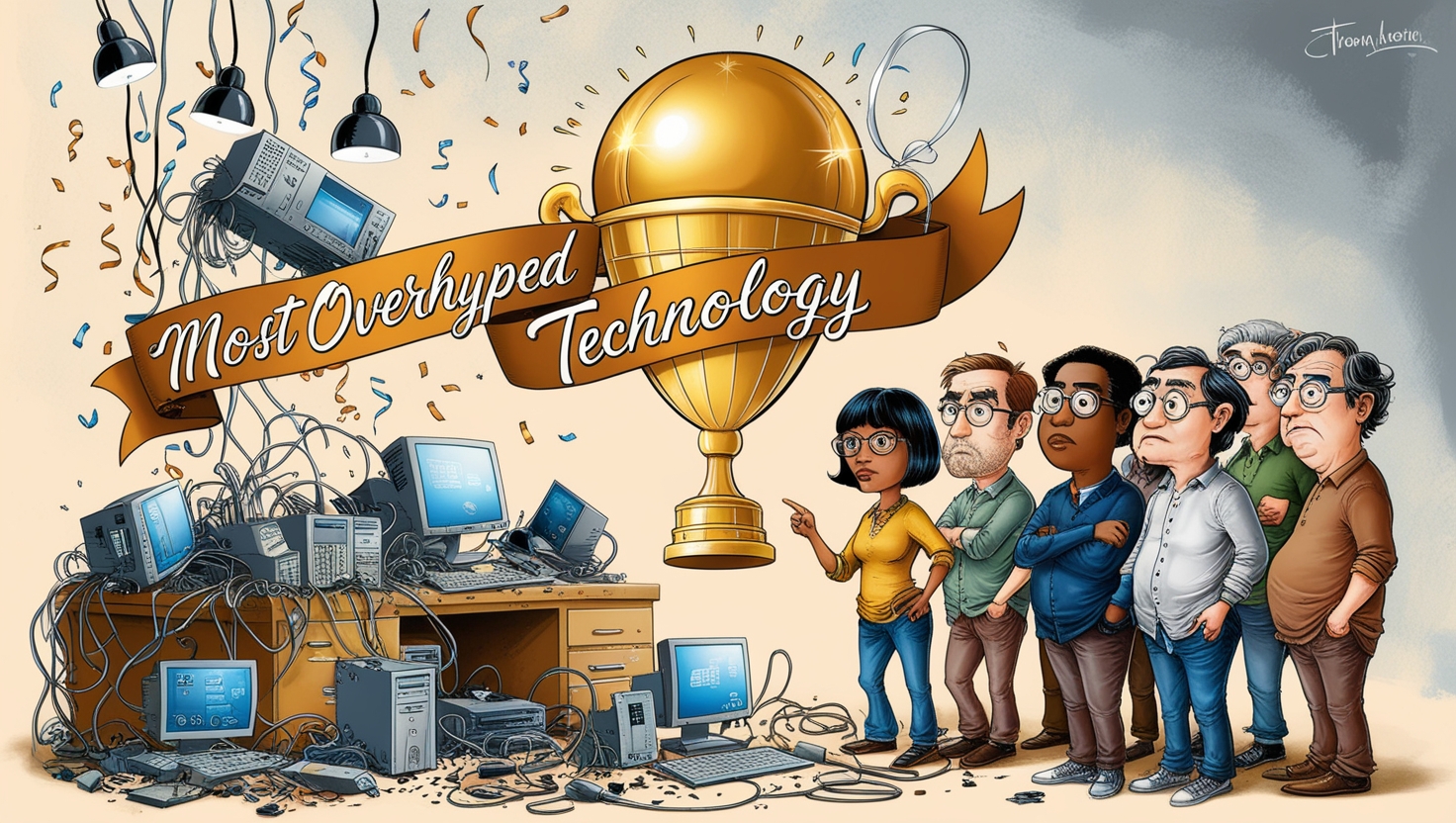You may have noticed in modern times that the nine ideas are happening fast some enthusiasts are very excited about it such as industry peers As well as as technology, however, before you promote its importance to enterprises, you need to understand that it is important to properly evaluate its usefulness.
Many CIOs admit to a fascination with writing about new technological advances and often question its relevance to enterprises. That’s because the expectations of the technology far exceed its current capabilities, when people’s enthusiasm for commemorative marketing can quickly reach the hype, but it’s often misplaced.
Quality is almost always at the core of business value for technologies in this modern age because a good industry expert will always study the industry’s impact potential and use the right balance of utility and suitability.
Also, transitioning from the initial vision promise stage to customer needs and their commercial adoption is a major challenge. Many innovations that fail to deliver Not every technology delivers on its initial promises and does not live up to its hype, thereby failing to create much new value.
Some Advances Gain Public Interest In today’s new era of technology, there is a lot of material excitement and media attention, but there are also many obstacles to their widespread adoption and ability to live up to initial expectations. There are very well-known technology leaders in IT that business people should consider investing in.
What Is the Definition of Technology?
Technologies are the use of scientific knowledge for experimental or practical purposes. The Technologies they apply to change the way they live can also use scientific principles to advance human constructs or other industries.
1. Blockchain

In today’s modern age, experts predict that blockchain can revolutionize everything from digital currency to voting processes to the entire economy.
But it’s the next big thing going on for years that experts haven’t seen take off in this business journey. A Gartner survey a few days ago indicated that nearly 1% of CIOs adopt any type of blockchain name.
And that’s why only 8% plan to try it.
Does the blockchain chain have a lot of potential? Yes, but that potential is just not practical for the average business in the current state.
You can see the reason for this as follows:
It’s Slow:
While blockchains’ biggest advantage is the ability to track financial and other transactions, the problem is that they can’t come close to the processing speed of current tracking systems.
According to a recent survey by Deloitte, modern transaction processing systems can process thousands of transactions in a second.
In their current state, Ethereum blockchains do about 15 transactions per second, and as a result, many people do not consider the blog chain to be a very good solution for its applications and transactions.
“Blockchains are a cryptocurrency past technology and there is a special reason that it is one of the fastest growing technologies in the past and in this modern era. And Hamna Amjad, an expert at Gx, says one of its special attractions is that it should have been very fast. However, it is often slower than its traditional counterparts because it requires all transactions to be cryptographically verified”
It requires massive changes.
Do legacy systems still exist in businesses around the world? It is still difficult to replace. Often these legacy applications and systems are mission critical to the business, and replacing them is a daunting task.
For anyone using Chain that faces this issue and has systems and processes already in place, the current state of the system to implement Blog Chain as explained below requires a significant change in the process.
“Amjad explains that while it is difficult to implement blockchains in the existing system used by banks for transactions and other information systems such as security management or supply chain monitoring. The reason for this is that you may have seen that in unavoidable situations that usually demand common sense, or in more unexpected contingencies that require a middle level, implementing a blog chain means changing the entire banking system”.
It requires new skills.
One of the reasons that blockchain implementation requires a large skill set that very few businesses currently possess is that the technology is so new that the average business person will have trouble hiring employees who understand blockchains. Unless a skill is trending, business people will struggle to adopt.
“Amjad says that it is important for many businesses to first understand the concept of blockchain and the new technology before turning to it, but it is difficult to find all the people in this technology field so it is difficult for business people to experience it”.
2. Artificial General Intelligence (AGI)

It is not only generator AI that is considered over height Artificial General Intelligence (AGI) is another technology that is generating more interest in the market than expected in its current state.
A lot of people wonder what AGI can do. At least the imagination has surpassed reality. IBM describes AGI as a science fiction version where AI is built into a machine.
And as humans, learning reaches a level of understanding and cognitive flexibility, and reflects on how it can be purely theoretical to probabilistic.
Revolutionize every aspect of human life and its functioning AI is the only one in modern times where AI has the cognitive capabilities of humans and is close to how humans function but far from achieving it.
3. Quantum Computing

As much as I hesitate to mention Quantum Computer, even though it’s gotten a lot of hype in the market, most CIOs and IT leaders understand it’s a long way off.
But since Google’s recent announcement has raised the bar, I’d like to mention it to you and tell you that Google’s Quantum Computer has solved a problem that would be virtually impossible for a normal machine to solve and solve a very difficult calculation in 200 seconds.
Solved In which the most powerful supercomputer will take 10,000 years, the current modern performance is very good, so it shows the amazing potential of quantum computers, but the problem with the current state is that quantum computers are still too far for average business use.
When can we expect to go mainstream? A recent report has concluded that we’re nearly a decade away from quantum computers full of these capabilities.
But there are certainly some major challenges that need to be addressed throughout the report that will certainly run around these super traditional computers And it is very important to solve it.
It error-prone:
Qubits are a fundamental unit of quantum information that are sensitive and error-prone. These articles clearly state that experts would have to return either real or numerical calculations to get the correct answer from a quantum computer.
Otherwise, they would have to build a Qubits Quantum Computer and even 10 times more Qubits clustered together in an area would interfere with each other causing errors.
It requires significant funding:
The most important thing for a quantum computer in its current state is that it requires both time to develop and money to research it.
Current reports highlight this fact as one of the biggest challenges going forward if early error-prone quantum computers don’t hit the market for years to come.
However, even these private companies will not be able to sustain R&D in quantum computing, the articles state
Experts have made great promises for quantum computing, but as the articles make clear the feat still seems a long way off, it’s only a trend at the moment.
The technology that today’s biggest companies can explore is far beyond the reach of ordinary humans.
” Quantum computers are the most exciting technology in modern times. The ability to compute at that level at a smaller size is a game changer, says Alexander M. Kehoe, co-founder and director of operations at Digital Solutions.
But it’s essential to get it all right, and the only people who are doing it right are Google and NASA whenever they start talking about their cotton quantum computing capabilities with their startups and products.
You won’t be surprised because they say any business owner should remember that any quantum computing product is at least ten years away from commercialization.
And there’s probably twenty more years in that, and I’d like to tell you not to fall for this quantum computing hype just yet, wait until there are real small-scale applications for the technology”.
4. Metaverse and spatial computing

Although the technology was largely under-hyped a few years ago, many argue that the expectations of spatial computing in the Metaverse, or augmented reality, are now outpacing its value.
So it becomes a great entry in the list of most popular technologies of 2024. Metaverse and AR/VR technology can be compared to blockchains.
And then it was made by AI. Thomas Phelps Eye Village Laserfiche and members say that the Sim Research Institute Advisory Board took center stage at all the major conferences held in 2022 at a Metaverse research institute on salt.
Conclusion
While technologies such as Metaverse Generator, AI, and Quantum Computing have guaranteed revolutionary advancements in industries these days, they often need to live up to expectations due to their initial market demand. As CIOs and many business people move into technology-dependent upward complexity, looking past the sweet word and seeing how seriously they evaluate and value these innovations is imperative.
Understanding the applications or limitations of today’s new technologies will help companies make informed decisions, invest wisely, and ultimately deliver meaningful results. As the landscape evolves in today’s modern times, being prepared for the new will be key to leveraging technology effectively.
FAQ
1. How do you distinguish between overhyped and genuinely transformative technologies?
To distinguish between overhyped and truly transformative technologies, focus first on real-world application adoption rates and long-term impact. A truly transformative technology that meets a common, clear business need and demonstrates consistent progress in scalability and usefulness. Or they have significant limitations that are not quite publicly addressed.
2. Is blockchain technology truly as revolutionary as some claim?
All secure decentralized record keeping like blockchains has revolutionary potential and is most influential in areas like finance and digital identity. Although many scalability issues such as their energy consumption and limited real-world adoption have prevented it from realizing its full promise, it does offer people transformative possibilities.
